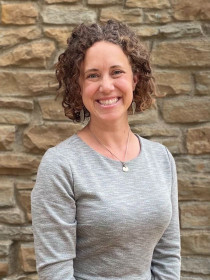
Carrie Henning-Smith
Connect with Carrie
About Carrie
Henning-Smith’s research focuses on aging, disability, housing and living arrangements, disparities in physical and mental health outcomes, access to care, and long-term services and supports. She is especially interested in making connections between the social determinants of health and policy interventions to improve the quality of lives of older adults and individuals with disabilities. Henning-Smith additionally serves as the Deputy Director of the University of Minnesota Rural Health Research Center, and Director of Graduate Studies for the School of Public Health Health Equity Minor. Her work has been widely cited in federal and state policy documents, as well as in national and international media outlets.
Contributions
In the News
Publications
Finds that older adults differ in their risk of functional decline by both their living arrangement (who they live with and what type of housing they live in) and their amount of accumulated wealth. Identifies where older adults with disabilities live and that comprehensive interventions to reduce disability progression should consider household, social, and environmental context, as well as wealth.
Identifies unique challenges to finding appropriate long-term care for adults younger than 65 in rural areas. Uses data from 23 semi-structured interviews with rural hospital discharge planners in five states.